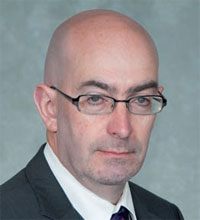
O-licence increase granted but inconsistencies found in record keeping for driver travelling time.
Linburg Touring has been issued with a formal warning by the Traffic Commissioner (TC) for the North East of England.
The company, which operates coach services from and around Sheffield and Derby, as well as local bus services, was issued the warning on July 11 at a Public Inquiry (PI) in Leeds.
The North East TC Kevin Rooney called the business to the hearing after receiving reports from Vehicle and Traffic Examiners.
During inspections of the operator’s records, the Examiners identified shortcomings and driver offences, leading to concerns about whether the company’s Director and Transport Manager, John Hadaway, had sufficient control and input into the transport operation.
From an analysis of the operator’s tachograph charts, the Traffic Examiner found instances where some had worked for more than 4.5 hours without a break. She also identified that, on several occasions, drivers had failed to keep a record of the time they spent travelling.
The Vehicle Examiner’s report concluded the operator’s maintenance facilities and systems were generally satisfactory but identified some paperwork on defect reporting was not available at the time of his visit.
Hadaway told the TC he set up Linburg Touring Ltd in 1988 with a former colleague. The company operates on school contracts, conducts work for National Express and also engages in private hire business.
The operator’s solicitor established that the procedures in place for keeping vehicles roadworthy was acceptable to the Vehicle Examiner, who made some recommendations on auditing paperwork around driver defect reporting.
The Traffic Examiner explored the operator’s training records and driver correspondence, suggesting both offered evidence contrary to the interviews given by drivers that they had not received any training. The examiner accepted the paperwork indicated a suitable system was in place for monitoring the work of drivers.
The Traffic Examiner confirmed that although the company’s drivers did not record time spent travelling to locations as required, they had not committed any other offences while doing so and therefore had not driven over their legal hours. Acknowledging this as a positive feature of the case, Rooney outlined that his concerns centred on whether Hadaway had hands on management of the business, in his role as transport manager.
Hadaway confirmed he delegated responsibility for maintenance and drivers’ hours compliance to two individuals within his business, but that he retained overall control as Transport Manager and carried out checks on the work of those individuals he delegated to.
The TC questioned the Transport Manager on his understanding of the regulations governing the work of his drivers and what training he undertook to update his knowledge. Hadaway explained he made use of published guidance but had not completed any formal training and was not a member of a trade organisation.
On the instances where drivers had not kept a record of their travel, Hadaway advised the TC they had moved onto new work and were unfamiliar with the procedures and that it was an ongoing battle to educate new drivers who joined the company.
Turning to an application made by the company to operate extra vehicles – which was also called to the hearing – Rooney stated he had to be satisfied the business could cope with that additional responsibility, in the context their recent change in operation leadingto illegal activity.
Rooney concluded the company generally complied with the requirements to hold an operator’s licence but noted there were issues around consistency.
He said: “The evidence of both of the Examiners indicated that there were sound systems in place but there were some issues with them not being fully used at all times. My concern is around driver training and I also feel some fresh training is needed for the transport manager.” The TC therefore directed that a formal warning would be recorded against the company’s licence. However, he took no regulatory action under Section 17 of the Public Passenger Vehicles Act 1981. The application to operate more vehicles – three in total – was also granted.
The operator agreed to four undertakings, including a commitment to external audits of its maintenance and drivers’ hours records and the completion of mandatory driver training by the end of October 2012.
The company is also required to ensure Transport Manager John Hadaway completes a refresher training course by the end of December 2012.
“As Transport Manager, Hadaway has satisfied me that whilst he delegates the management decisions he still retains control and can still be said to be in continuous and effective management of the transport operation,” added Rooney. “I do however feel he would benefit from some updated training, given the number of changes in recent years.”


